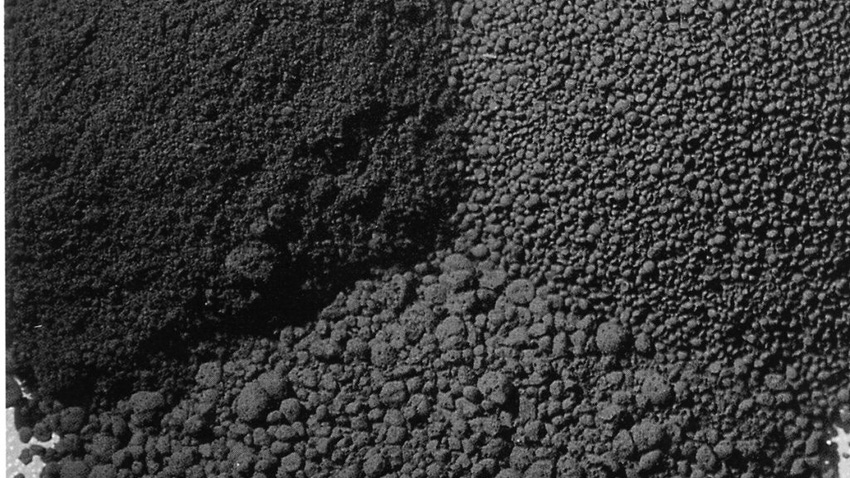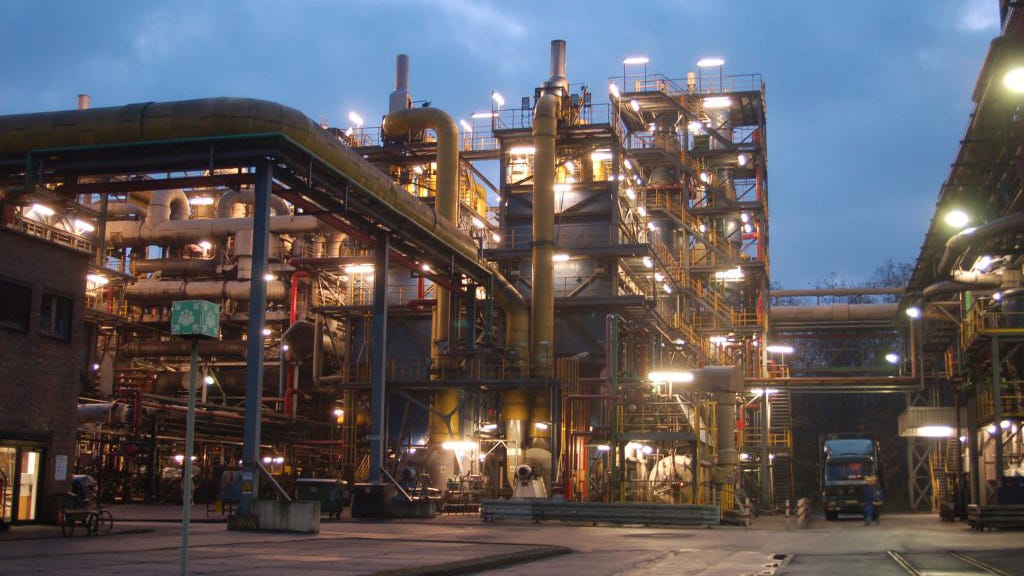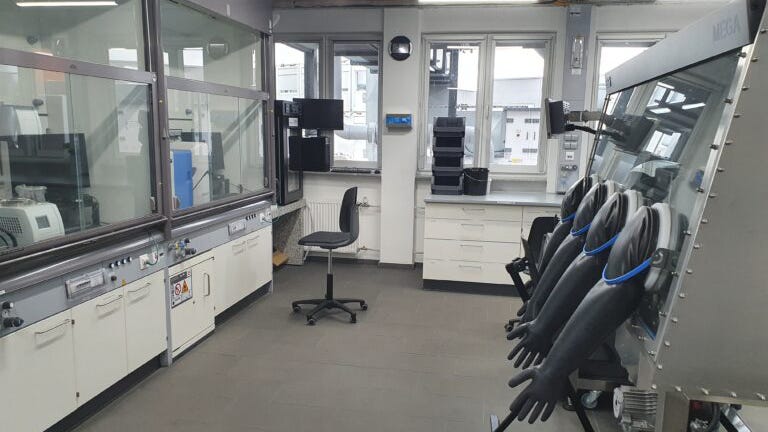The Crucial Role of Carbon Black in Li-ion Batteries
This integral anode component makes lithium-ion batteries more stable, safer, and more energy-dense. Orion SA experts explain how.

Carbon black is a crucial component in lithium-ion batteries, particularly in the anode composition. It enhances electrode conductivity during charge and discharge cycles, improves anode structural integrity, enables faster charge/discharge rates, and increases battery energy density, improving overall performance and longevity. It also prevents agglomeration of anode materials during cycling, maintaining stability. Furthermore, carbon black aids in dissipating heat—crucial for preventing overheating issues and ensuring Li-ion battery safety.
Not all carbon black is created equal, however, and understanding which grade is optimal for a given battery design is essential for Li-ion battery developers.
To get a better understanding of how carbon black is itself developed, optimized, and used in the industry, we’ve turned to Orion SA, a company that’s been making engineered carbons for well over a century: The firm’s plant in Kalscheuren, outside of Cologne in Germany, has been producing carbon black for 126 years. The company’s Dr. Adrian Steinmetz, Global Vice President for Conductive Additives, and Dr. Michael Rohde, Director of Global Marketing for Batteries, emailed answers to our many questions.
How do carbon black grades enhance the performance and efficiency of lithium-ion batteries? Are there any specific properties or characteristics that are crucial in this regard?
Director of Global Marketing for Batteries Michael Rohde: Orion’s carbon black grades play an instrumental role in elevating the performance of lithium-ion batteries by introducing a highly conductive portfolio that directly influences structure and surface area, crucial for facilitating good percolation. The carbon black forms a three-dimensional network around the active material, allowing the transfer of electrons from the active material to the current collector. The active material on the cathode side is not conductive by itself, which is why our carbon blacks play the most significant role here by enabling conductivity. In addition, adding carbon black throughout the battery improves performance and enables an efficient charge and discharge process, which in turn extends battery life.

Orion’s plant in Kalscheuren, outside of Cologne, is the world’s longest-operating carbon black plant: In 2022, the facility celebrated its 125th anniversary. Image courtesy of Orion S.A.
Moreover, our commitment to quality and innovation is reflected in our production of high-purity and low-moisture carbon black grades. These attributes, which are pivotal to enhancing safety, also directly correlate with extending the battery's lifetime and cycle life by minimizing the risk of contamination and ensuring stable electrochemical properties over extended periods of use. Through our innovations and continual efforts in developing advanced carbon black grades, Orion remains at the forefront in contributing to the enhancement of lithium-ion battery technology, ensuring it is not just efficient but also reliable and safe for varied applications.
What key performance metrics are used to evaluate the effectiveness of carbon black grades in battery applications?
Global Vice President for Conductive Additives Adrian Steinmetz: At Orion, when evaluating the effectiveness of carbon black grades in battery applications, we adhere to a stringent set of key performance metrics to ensure optimal functionality and longevity of the batteries.
First, a pivotal metric is the reduction of internal electrical resistance within the batteries, which is achieved through our meticulously engineered carbon black grades. This reduction not only enhances energy efficiency but also plays a critical role in minimizing energy loss during usage.
Second, our carbon black grades are designed to enable high-power charge and discharge operations. This ensures that the batteries can efficiently handle the rigors of rapid charging and power-intensive discharging, thereby catering to applications that demand high power output without compromising on the cycle life or integrity of the battery.
Third, Orion emphasizes producing carbon black grades with very low levels of metal and moisture. The purity of our products is paramount, as it directly influences the safety and durability of the batteries. By ensuring our carbon black is devoid of detrimental contaminants, we facilitate the production of batteries that are not only high-performing but also secure and reliable.
Are there any specific challenges or limitations associated with integrating carbon black grades into lithium-ion battery manufacturing processes?
Rohde: Integrating carbon black grades into lithium-ion battery manufacturing processes presents a unique set of challenges. One pivotal challenge hinges on the slurry-making process, wherein carbon black is a critical component. The inclusion of carbon black significantly influences the rheology of the slurry, affecting its flow and dispersion characteristics, which, in turn, impacts the uniformity and quality of the electrode coating.
What’s more, the process parameters and the characteristics of carbon black must be intricately aligned to ascertain seamless integration and optimal battery performance. Orion strongly supports its customers in this regard, providing expertise and solutions to ensure that the carbon black and the manufacturing process coalesce harmoniously, thereby mitigating potential disparities or inefficiencies.
It's also noteworthy that, as an inactive material, customers often seek to utilize the minimal amount of carbon black to meet the desired performance and efficiency metrics of the battery. This necessitates a meticulous balance, ensuring that the carbon black grades are optimized to deliver the requisite conductivity and structural support, even when utilized in minimal quantities.
Orion works with our customers to navigate through these challenges, provide tailored solutions, and apply our expansive knowledge to facilitate the smooth integration of our carbon black grades into their battery manufacturing processes.
Could you provide an overview of Orion’s role in developing and producing carbon black grades for battery applications?
Steinmetz: Orion is a key supplier in the expanding battery industry across Asia, Europe and the Americas. We are deeply committed to reducing CO2 in energy and mobility sectors, in alignment with our sustainability pledge. Our main Innovation Center in Cologne, Germany, leads our advanced product development efforts, and we support it with a manufacturing network close to our customers worldwide.
Orion just opened its Battery Innovation Center and installed a new leadership team for the conductive additives business for batteries. These moves significantly expand our service to the swiftly escalating lithium-ion battery industry — a vital force in the global shift toward electrification. The battery lab is located at our innovation hub in Cologne, and it features a comprehensive suite of state-of-the-art production, testing and diagnostic equipment. It will speed Orion's product and process development and foster close collaboration with customers to spur innovation and address evolving market needs.

Orion’s Battery Innovation Center in Cologne opened in September 2023. The facility includes state-of-the-art production, testing, and diagnostic equipment. Image courtesy of Orion S.A.
Further, with a robust manufacturing network spread across the globe, we ensure that our production capabilities are strategically located close to our customers. We provide them with timely and efficient access to our high-quality products, thereby propelling advancements in battery technology and promoting a more sustainable future.
Are there any notable differences in the carbon black grades required for different types of lithium-ion batteries, such as those used in electric vehicles or consumer electronics?
Rohde: Orion's expertise extends across varied battery chemistries, including LFP, NMC, and anode formulation. Our diverse portfolio of carbon black grades, paired with specialized technical support, ensures we meet the discrete requirements across battery segments and customer specifications. Through a meticulous understanding of the distinct requisites of various chemistries and applications, such as in electric vehicles and consumer electronics, Orion can deliver carbon black grades that not only comply with but significantly enhance the performance and durability of an expansive array of lithium-ion battery applications.
How does Orion collaborate with battery manufacturers or other industry stakeholders to optimize the performance of carbon black grades in batteries?
Steinmetz: At Orion, our strong collaborative ethos underpins our partnerships with battery manufacturers and stakeholders. A cornerstone of our approach is the expert collaboration from our technical service team, ensuring comprehensive support and expertise is accessible to our customers throughout every phase of product interaction and development. Our joint development initiatives with key customers have culminated in the tailored crafting of battery solutions, wherein our exhaustive knowledge of carbon black is fused with the practical, application-specific insights of our partners, propelling advancements in battery technology across various applications.
Rohde: In another industry collaboration, two years ago we joined the HiQ-CARB consortium – an EU-funded project with the goal of developing more sustainable, affordable and high-quality carbon black additives for lithium-ion batteries. The consortium includes seven leading European industry players, research institutes and universities. As the consortium’s only carbon black producer, we are evaluating sustainable acetylene blacks with low LCA in combination with CNTs.
How does Orion ensure the consistency and quality of its carbon black grades for battery applications?
Steinmetz: Orion ardently commits to unwavering quality and consistency in our carbon black grades for battery applications, accredited by our adherence to ISO 9001 standards. Our familiarity with the International Automotive Task Force (IATF) and other stringent automotive standards manifests in our vigorous approach to quality assurance. Our state-of-the-art analytical laboratories, sophisticated quality management systems, and comprehensive application testing ensure that every carbon black grade we produce not only meets but exceeds the stringent requirements of battery manufacturers and other stakeholders, thereby ensuring reliability, performance and consistency across all applications.
What sets Orion apart from other companies regarding its expertise and offerings in carbon black grades for battery applications?
Steinmetz: Orion is proud to be the world's oldest carbon black supplier, dating back to our start more than 160 years ago in Germany. We also have the distinction of operating the longest-running carbon black plant. In fact, our history is intertwined with the battery industry, to which we have been a steadfast supplier for many decades. We also have been a key supplier for the automotive OEM and parts industries, a testament to the trust and value our offerings have provided over the years.
In terms of technological prowess, Orion's portfolio is unparalleled. We have the most process technologies in the carbon black industry, including acetylene, furnace, gas black, and lamp processes. We also are the only acetylene black supplier in the Western hemisphere.
We recently publicized notable expansions. In France, we are the sole producer of acetylene-based conductive additives in Europe. In the U.S., we’ll have the same advantage. Our new plant underway in La Porte, TX, will not only be the sole facility of its kind in the nation, it also will quadruple Orion’s manufacturing capacity for these high-demand acetylene-based conductive additives, which are crucial to lithium-ion battery producers. The new U.S. plant reinforces our global footprint and commitment to propelling the industry forward.
Rohde: One of the most notable features of our acetylene black process is its favorable environmental profile. The plants are virtually zero-waste facilities with very low nitrogen oxides (NOx) and sulfur oxides (SOx) emissions. They repurpose an industrial byproduct—acetylene gas—supplied by a neighboring plant and upcycle it to create high-value conductive additives. Conventional carbon blacks, including conductive carbon blacks, are produced from heavy oil. This results in emissions of SOx and NOx and a high CO2 footprint. However, Orion’s environmentally friendly and efficient manufacturing process is based on gaseous acetylene, which is inherently cleaner and virtually free of impurities.
Approximately 90% of the carbon is retained in our product, resulting in scope 1 emissions of only 200kg of CO2 equivalents per one ton of product, while other highly conductive furnace blacks can show more than magnitude higher values.
But what truly sets Orion apart from competitors is our customer-centric approach. We prioritize understanding and replicating our customer's process conditions, enabling us to provide tailor-made solutions that resonate with their unique needs. This bespoke approach ensures that our clients receive optimal products and solutions, cementing our position as an industry leader.
Looking into the future, what developments or trends do you foresee in the use of carbon black grades in battery applications?
Steinmetz: Moving forward, conductive additives, particularly carbon black grades, will steadfastly retain their essential role across all battery applications. We are anticipating surging demand, paralleling the penetration of electric vehicles in the market. Trends suggest a pivot toward higher conductivity and purity in carbon black grades, aligning with the escalating demands for enhanced battery performance. Furthermore, sustainability, underscored by low Life Cycle Assessment, will emerge as a critical differentiator in the industry.

Orion SA's Dr. Adrian Steinmetz, Global Vice President for Conductive Additives, and Dr. Michael Rohde, Director of Global Marketing for Batteries. Image courtesy of Orion S.A.
About the Author(s)
You May Also Like





